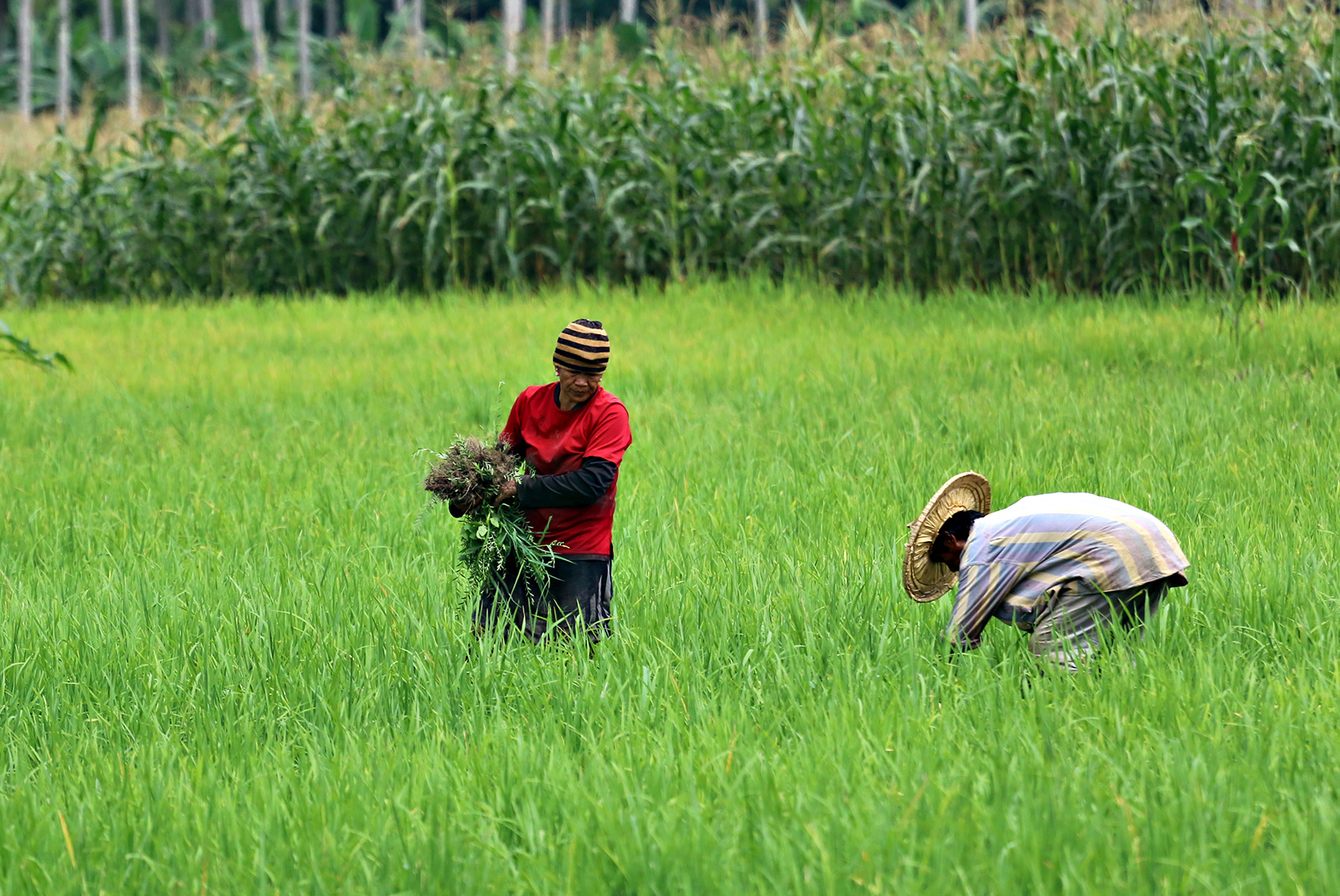
Farmers work in a rice field in Mamasapano, Maguindanao, in this 2019 photo. INQUIRER file photo / ERWIN MASCARIÑAS
MANILA, Philippines — Rice farmers lost P206 billion over the last three years due to the Rice Liberation Law, the Anakpawis party-list said Friday as it urged lawmakers to repeal the law.
According to the group, farmers will continue to go bankrupt from the losses, and the country’s ability to provide for itself through food production may be jeopardized.
“Nang inilabas na ang mga datos sa volume and value of production noong 2020, nalugi na ang mga magsasaka nang mahigit P136 bilyon, sa datos ng 2021, lumalabas na lumaki pa ito at umabot na P206.6 bilyon, sa ilalim ng Rice Liberalization Law regime,” Anakpawis Party-list National President Ariel Casilao said in a statement.
(When data on the volume and value of production was released in 2020, farmers lost over P136 billion. However, data in 2021 showed that losses grew to P206.6 billion under the Rice Liberalization Law regime.)
The average farm-gate price of palay plummeted to P16.67 per kilo in 2021, lower than the P20.19 per kilo in 2018.
“Malaking isyu ang pagbagsak ng presyo ng palay, dahil kada piso nito, ang bunga nito sa kabuuang value of production ay pagkawala ng P18.8 hanggang P19.9 bilyong dapat napunta sa mga magsasaka sa bansa,” Casilao pointed out.
(Each peso loss in palay prices can result in a loss of P18.8 billion to P19.9 billion, which should have been given to farmers.)
Anakpawis said Republic Act No. 11203 or Rice Liberalization Law slashed farm-gate prices, allowing landlords and traders to gain huge profits.
RELATED STORIES:
Rice imports: Group says PH farmers, consumers both lose
Dominguez defends rice import liberalization law
The group added that importers also benefitted as they received P73.48 billion in 2019 and P43.95 billion in 2020, based on the total volume of imported rice within the year.
Casilao emphasized that aside from these figures, the country’s rice self-sufficiency also fell to 80% in 2019 and 85% in 2020.
He then called on other concerned sectors to join the demand for the law’s repeal.
“Given these value, price, and profit in our rice sectors due to the Rice Liberalization Law, our farmers are clearly being outgained by landlords, importers and traders,” Casilao said in Filipino.
“There’s no doubt that this law is against our farmers and the people, and is only in favor of the elite. This should be reviewed by our lawmakers because this could lead to starvation, further profit loss on the part of our farmers, and drastic drop in the production of palay,” he added. – Irish Lorraine Perez, INQUIRER.net trainee